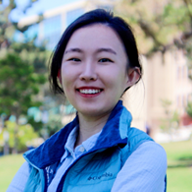
Elizabeth M.Y. Lee
Samueli School of Engineering
University of California, Irvine
Irvine, CA 92697
Elizabeth (Liza) Lee is an assistant professor of materials science and engineering and chemical and biomolecular engineering. Her research program investigates the formation, breakdown and transport of matter within materials and at their interfaces using theory and computational modeling. The goal is to leverage these fundamental insights to design sustainable materials and their synthesis processes for advanced quantum and energy technologies. Among Lee's notable honors are the NSF CAREER Award, UCI Samueli Faculty Development Chair Award, DOE ASCR Leadership Computing Challenge Award, NSF Graduate Research Fellowship and the AIChE Electronics and Photonics Materials Award. For her dedication to education and mentorship, she has received the UCI Engineering Student Council’s Professor of the Year Award and the University of Chicago Maria Lastra Postdoctoral Mentor Award.
Ph.D., Massachusetts Institute of Technology, Chemical Engineering
M.S., Massachusetts Institute of Technology, Chemical Engineering Practice
B.S., Johns Hopkins University, Chemical and Biomolecular Engineering
B.A., Johns Hopkins University, Chemistry
We develop and apply advanced modeling tools based on ab initio calculations, machine learning and molecular simulations to study functional materials. Our research program investigates the formation, breakdown and transport of matter within materials and at their interfaces. The goal is to leverage these fundamental insights to design sustainable materials and their synthesis processes for advanced quantum and energy technologies. Current research activities focus on three areas: (1) catalytic plastic waste deconstruction, (2) quantum defects in semiconductors, and (3) computational methods development using ab initio simulations, statistical mechanics and machine learning.
